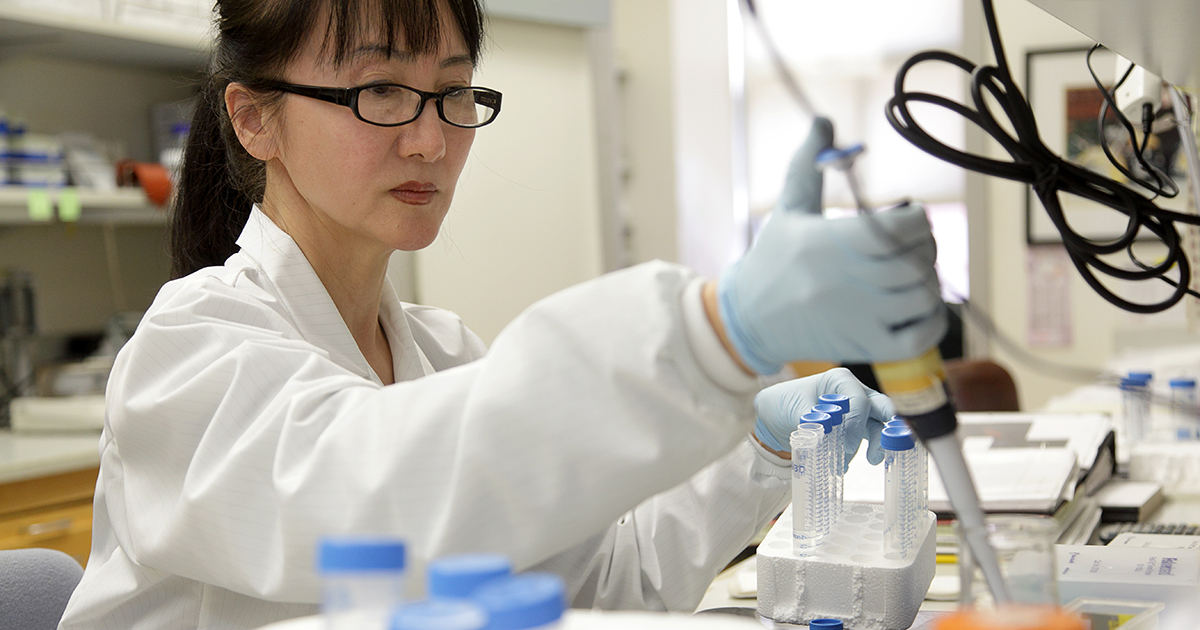Clinical trials are studies to test the efficacy and safety of a new or approved drug, drug combinations, device or a procedure. Trials treating cancer study targeted therapy and treatment combinations including chemotherapy, radiation and surgery or they may focus on ways to detect, diagnose or measure the extent of disease. Patients considering a clinical trial may choose this method of treatment as a first course of action, an alternative after other treatments have proved ineffective or to help advance medical knowledge. Across the globe, researchers make new discoveries thanks to innovative thinking and the volunteer participation of patients. The following information will help pancreatic cancer patients and loved ones understand the purpose and process of a clinical trial and where to start looking for available trials.
Understanding Clinical Trials
Participating in a clinical trial is especially significant for pancreatic cancer patients who have exhausted treatment options or want to explore new treatments that may be less traditional. The research is piloted by pharmaceutical and biotechnology companies, government organizations, doctors and medical centers, nonprofits or foundations. Research of a new trug or treatment, from start-to-finish, can take months or years to determine long-term results but may discover life-saving treatments in the process. Pre-clinical studies of cancer cells that produce promising results can be approved by the US Food and Drug Administration (FDA) and advance from phase I through IV when each phase is successful. A clinical trial found to be effective and safe will ultimately receive approval for use on the public. There is some risk in participating in a clinical trial so please consult with your oncologist or physician first.
Phases, Protocols & Patient Safety
The phases of a clinical trial are designed to build up from phase I through IV allowing researchers to learn the benefits and risks and answer certain questions about a drug or treatment. When the FDA gives permission to test a drug or treatment on a population, researchers are required to follow strict FDA regulations and guidelines while volunteers must give informed consent and are given rules and terms to follow. For the safety of the participant, trials are monitored by scientific experts, an Institutional Review Board and Data & Safety Monitoring Boards. Read our Clinical Trial Phases, Protocols & Patient Safety worksheet to learn more of the details of each phase and patient safety.
Clinical Trial Phases, Protocols & Patient Safety »
Diversity in Clinical Trials
Diversity and representation are critical to ensuring the safety and efficacy of a drug, procedure or device in all populations. Representation of various races, ethnicities and ages is a concern in clinical trial recruitment. Black Americans have a 20% higher incidence of pancreatic cancer in the U.S. but they account for merely 4% of patients in cancer clinical trials. A 2018 FDA clinical trial snapshot revealed that Hispanics and Latinos also account for only 4% of cancer clinical trial patients and that 48% of adult clinical trials overall missed their target recruitment goal for minorities. Racial disparities exist in clinical trial recruitment, cancer research and patient care. Balanced representation in clinical trials is key to ensuring that new and emerging treatments are effective for the very people who need them.
Patients from all backgrounds should consult with a doctor about clinical trials. If you’re interested in being part of a clinical trial, talk with your doctor.
Read more about the US Food and Drug Administration’s (FDA) efforts to increase diversity in clinical trials.
Resources & Search Tools
Learn more about clinical trials when you watch the Hirshberg Foundation video, the ABC’s of Finding a Clinical Trials with Dr. Anand. The following list of websites will also assist in a search for clinical trials currently available for patients.
- National Cancer Institute (NCI) Online resources for cancer clinical trial information and search tool
- FDA Clinical Trials Search Federally and privately supported trial purposes, participate types and locations
- MassiveBio Artificial Intelligence (AI) platform SYNERGY to match the most appropriate cancer clinical research based on type and stage
- American Society of Clinical Oncology Information on pancreatic cancer, CISCRP search tool for specific cancers and How-to Find a Trial video
- EmergingMed Clinical trial navigator service and online search tool
- Let’s Win PC How to find a clinical trial video for pancreatic cancer patients
- National Institutes of Health (NIH) Database of clinical trials and non-trial studies
- University of California, Los Angeles (UCLA) clinical trial search tool


